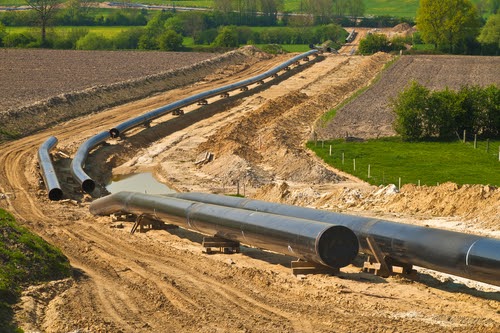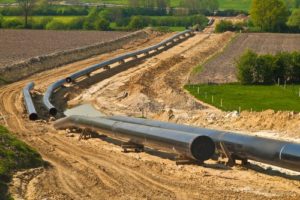
HARRISBURG, PA (February 22, 2023) – Today, the Pennsylvania Supreme Court handed down a major decision in two suits where the public sought reimbursement for legal costs in environmental cases: the Clean Air Council, the Delaware Riverkeeper Network, and Mountain Watershed Association v. DEP and Sunoco Pipeline and Gerhart v. DEP and Sunoco Pipeline cases.
The Supreme Court’s decision reversed a lower court ruling that had put up a major barrier to reimbursement of legal costs for environmental lawsuits brought by non-profits and residents. Now, members of the public, who are harmed by permits allowing industrial activities, and who successfully appeal those permits, are more easily able to get reimbursement of their legal costs. The reimbursement can come not only from the state, who issued the permit, but from the company holding the permits, and profiting from the permitted activity. Legal experts, fees, and other costs necessary for these cases can easily reach tens or hundreds of thousands of dollars, and the cases can go on for years or even decades, making appeals like this out of reach for most absent the ability to recoup costs.
The decision is a victory for the environmental organizations, who had sought but been denied reimbursement for their legal costs from Sunoco Pipeline, the builder of the controversial Mariner East pipelines. It is also a victory for the Gerhart family, landowners along the pipeline route who stood up to the company and also had success at the Pennsylvania Environmental Hearing Board.
“Today’s ruling from the Pennsylvania Supreme Court is a huge win for the public,” said Joseph Minott, Executive Director and Chief Counsel of Clean Air Council. “Too often, when members of the public have been harmed by big polluters, they are unable to afford legal support. Today’s ruling makes it easier for the public to be compensated for their legal costs when their lawsuits are successful. This opens the door for the public to finally have their day in court and for justice to be restored.”
Melissa Marshall, Community Advocate with the Mountain Watershed Association stated, “We are pleased with the decision for two reasons. Not only does it remedy a bad standard, but it also clarifies, for the first time, that it is the permittees – often exploitative industries, such as mining and fracking — and not just the taxpayers, who should bear the financial burden when environmental groups bring protective lawsuits.”
“Today’s decision appropriately recognizes the significant role that citizen objectors play in the vindication of environmental rights and the General Assembly’s laws protecting the public natural resources. This ruling helps support legal action against bad permitting decisions, and holds accountable the parties who stand to benefit financially from those decisions,” said Kacy Manahan, Senior Attorney for the Delaware Riverkeeper Network.
“Today’s opinion shows that Pennsylvanians who enforce the Clean Streams Law have a voice and that applicants who submit faulty permit applications to DEP can be held responsible for their sloppy or incompetent work,” said Rich Raiders, attorney for Stephen and Ellen Gerhart, Huntingdon County landowners who won a fee award from DEP, but not Sunoco, in a case decided with the Clean Air Council matter in today’s opinion. The Gerharts successfully challenged a wetlands determination on their Huntingdon County property where Sunoco was required to remediate a parcel of forested wetland disturbed during construction.
In March of 2022, Clean Air Council, Mountain Watershed Association, and the Delaware Riverkeeper Network petitioned the Pennsylvania Supreme Court to overturn that lower court decision, which made it nearly impossible for residents or advocacy organizations to be compensated for their legal expenses from the permit holder when appealing a DEP permit. The Commonwealth Court decision affirmed the Environmental Hearing Board’s decision that denied the groups’ request for Energy Transfer (Sunoco Pipeline’s parent) to compensate parties for their legal fees stemming from an appeal of Sunoco’s Mariner East 2 pipeline permits.
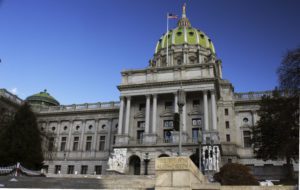
On Friday, Governor Wolf and the Department of Environmental Protection issued a ban on the issuance of water and earth-moving permits and approvals for Energy Transfer pipelines in Pennsylvania.
In response, Joseph Otis Minott, Esq. Executive Director and Chief Counsel of Clean Air Council, issued the following statement:
“The ban on new permits to Energy Transfer is the kind of leadership on pipelines that the public has been waiting for from Governor Wolf. This was a crucial step to protect the public from a company with a track record of environmental destruction, public safety disasters, and deception. The next logical step is to stop the operation of ET’s Mariner East pipelines for good.”
Click here to read the full press statement from Governor Wolf
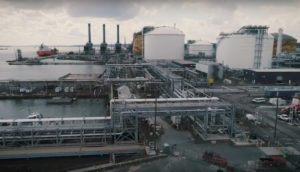
(PHILADELPHIA, PA – January 10, 2019) On Wednesday, the Pennsylvania Environmental Hearing Board (the Board) ruled that the Pennsylvania Department of Environmental Protection (DEP) unlawfully issued an air quality permit for natural gas liquids processing equipment at the Sunoco Partners Marketing & Terminals, L.P. facility in Marcus Hook, Pennsylvania. The processing equipment is designed to handle liquids from the Mariner East pipelines, which run across Pennsylvania. The decision came in response to Clean Air Council’s appeal of Plan Approval 23-0119E in April 2016, leading to a trial in May 2018.
The Board held that the project in question was really part of an overarching project to transform the former Marcus Hook refinery into a natural gas liquids processing facility. The larger project was unlawfully broken up into smaller projects for the sake of permitting. Where separate construction activities are really all part of the same project, the emissions from all of those projects must be aggregated to determine if more stringent requirements are triggered. Ultimately, the Board sent the air permit back to DEP so that DEP can re-evaluate how the project should be permitted.
The Board’s decision enhances existing law by providing detailed guidance on when multiple related projects should be considered one project in a review of an air permit application.
“The Environmental Hearing Board’s decision is not only a victory for Clean Air Council, it is a victory for public health and the neighboring communities,” said Joseph Otis Minott, Executive Director and Chief Counsel for Clean Air Council. “Too often, big industry players have avoided pollution controls by creating loopholes that jeopardize air quality protections. Sunoco/ETP has been one of the worst offenders in this regard, time and again circumventing the rules and putting the public at risk. The Board decision has finally closed this loophole.”
The Board’s opinion is available in full at: http://ehb.courtapps.com/efile/documentViewer.php?documentID=44482
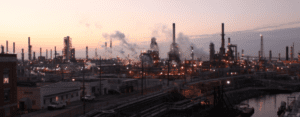
[PHILADELPHIA, PA – September 20, 2018] Today, the Kleinman Center for Energy Policy released “Beyond Bankruptcy: The Outlook for Philadelphia’s Neighborhood Refinery,” a report that raises concerns about contamination at the Philadelphia Energy Solutions (PES) refinery site and highlights the utter lack of public participation in the remediation planning process.
According to the report, Sunoco did not follow the required public participation process for remediation planning, as local residents, city agencies, elected officials, and other stakeholders were not able to provide input. The Pennsylvania Department of Environmental Protection (DEP) has already approved Sunoco’s analysis of contamination for eight of the eleven refinery sites deemed an “area of concern,” meaning Sunoco may comply with weaker pollution standards.
Joseph Otis Minott, Esq., Executive Director and Chief Counsel of Clean Air Council, issued the following statement:
“Sunoco has unlawfully denied local residents, city agencies, elected officials, and other stakeholders the opportunity to meaningfully provide input during the remediation planning process for the PES refinery site. The lack of public participation in planning for remediation at the site is completely unacceptable, especially given the extensive environmental contamination at the site and the proximity of the refinery to environmental justice neighborhoods. As PES is likely to go bankrupt again in the near future, it is critical that the city engage the public in thoroughly assessing the best possible future use of the refinery site that aligns with Philadelphia’s sustainability goals.”
###
Clean Air Council is a member- supported, non-profit environmental organization dedicated to protecting everyone’s right to a healthy environment. The Council is headquartered in Philadelphia and works through public education, community advocacy, and government oversight to ensure enforcement of environmental laws. For more information, please visit www.cleanair.org.
PHOTO: Kleinman Center for Energy Policy
PHILADELPHIA, PA (June 14, 2018) — On Thursday, the Public Utility Commission voted to uphold in part and deny in part an order by the Honorable Elizabeth Barnes shutting down the operation of Sunoco’s Mariner East I pipeline and construction of the Mariner East 2 pipelines in West Whiteland Township, Chester County. The Order was in response to a request from State Senator Andrew Dinniman seeking relief for his constituents from ongoing health and safety threats posed by the pipelines. Clean Air Council intervened in Senator Dinniman’s case before the PUC in support of his request and participated in the evidentiary hearing and briefing. Judge Barnes’ order requires a risk analysis and integrity management program to be created to warn and protect the public from danger and to reduce hazards posed by the pipelines. Hundreds of residents and many elected officials reached out to the Commission to express their support for these protections. With today’s vote, operation of Mariner East I will resume, but construction of Mariner East II in West Whiteland Township remains suspended.
“Clean Air Council is honored to be part of the incredible grassroots movement that led to today’s decision continuing the suspension of Mariner East 2 construction in West Whiteland Township, and to support the efforts of Senator Dinniman and the communities who stood up to make this possible. The threats posed by Sunoco’s Mariner East project do not end at the West Whiteland Township line. Communities should continue bringing their concerns to the Commission,” said Joseph Minott, Executive Director and Chief Counsel of Clean Air Council.
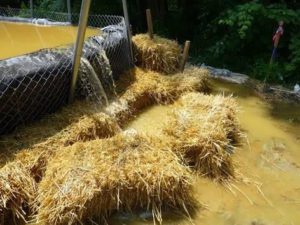
After a slew of legal filings, briefs, and hearings before two different courts, the Environmental Hearing Board, on Monday, April 16th, ordered stronger protocols for responding to and preventing drilling fluid spills on the Mariner East pipelines. Clean Air Council, Delaware Riverkeeper Network, and Mountain Watershed Association took Sunoco and the Pennsylvania Department of Environmental Protection (DEP) to court for violating a previously agreed-upon version of the protocols, and then quietly modifying those protocols without the input of the Council, other organizations, or the court.
The history of these protocols, called the Horizontal Drilling Inadvertent Return Assessment, Preparedness, Prevention and Contingency Plan (or HDD Plan for short) is somewhat complicated. The HDD Plan was originally part of the water permits DEP issued to Sunoco for the Mariner East 2 pipelines in February 2017. In August 2017, after a torrent of drilling fluid spills and drinking water contamination incidents made clear that the February 2017 HDD Plan was failing to protect the public and the environment, Clean Air Council and its partners filed an emergency motion with the court. This resulted in the court shutting down Sunoco’s drilling Mariner East 2 drilling operations until the parties agreed to improvements to the HDD Plan in August 2017. Fast forward six months, and DEP and Sunoco walked back some of those protections in a side agreement. Clean Air Council and its partners filed another emergency filing and have ultimately secured the most protective HDD Plan yet. And this time the stakes are higher if there are further violations.
The new HDD Plan accomplishes several important things. First, it now applies to all drilling methods that could result in drilling fluid spills. Second, professional geologists must be involved in determining whether it is safe to proceed with drilling after a spill. The new HDD Plan lays out specific requirements for what the professional geologist must investigate and present to the DEP. DEP then must find that any plans for continued drilling at the spill site adequately protect the public and the environment before it allows drilling to restart. Groundwater protections have been spelled out in detail so there can be no ambiguity in how they are applied; they are key because of the damage Sunoco’s operations has already caused to drinking water supplies and the continuing nature of that threat. Requirements for notifying DEP and the public about drilling incidents have also been improved.
There will also be increased transparency so landowners and other concerned members of the public will be better able to track any future spills that may arise: Reports prepared by Sunoco’s geologists will be shared with Clean Air Council and its partners. DEP’s documentation of spills on its website will be expanded, made uniform, and include more detail about spill locations–a key piece of information that had previously been missing.
The new HDD Plan is comprehensive, strongly protective, and scientifically rigorous. Perhaps just as important, the Environmental Hearing Board has made it crystal clear that it will not tolerate Sunoco and DEP trying to change it behind the backs of the public again. Even with these improvements, Clean Air Council is under no illusion that the new HDD Plan will be a silver bullet against all future problems and we believe it is still important to keep a watchful eye on construction operations.
You can view the new, April 2018 version of the HDD Plan here
Photo by Faith Zerbe/Delaware Riverkeeper Network
Contact:
Joseph Otis Minott, Esq, Clean Air Council, 215-567-4004, ext. 116
Maya van Rossum, Delaware Riverkeeper Network, 215-801-3043
Melissa Marshall, Mountain Watershed Association, 724-455-4200, ext. 7
February 14, 2017 (Philadelphia, PA) — On Monday, February 13, 2017, environmental advocacy groups Clean Air Council, Delaware Riverkeeper Network, and Mountain Watershed Association immediately appealed the issuance of twenty permits necessary for Sunoco Pipeline L.P. to begin construction of its proposed Mariner East 2 natural gas liquids pipelines. Earlier that evening, the Pennsylvania Department of Environmental Protection (DEP) issued the erosion and sedimentation control and water obstruction and encroachment permits, designed to ensure watershed protection. Environmental advocacy groups Clean Air Council, Delaware Riverkeeper Network, and Mountain Watershed Association appealed the issuance of the permits claiming that DEP had failed to address the negative impacts of the project.
The Mariner East 2 pipelines would span over 300 miles across 17 counties in Pennsylvania carrying natural gas liquids, including propane, butane, and ethane, which are 150 times more flammable than natural gas. The pipeline will cross many streams, wetlands, and waterways, severely impacting Pennsylvania’s watersheds.
DEP previously issued a multitude of deficiency letters to Sunoco Logistics in September 2016 in response to the earlier versions of the company’s permit applications, outlining hundreds of areas in need of improvement.
Clean Air Council has worked with landowners along the pipeline route for years to advocate for the rights of local residents to participate in the decisions that impact their health, welfare and quality of life and to ensure the protection of local ecosystems. The group believes that the issued permits should be overturned and work on the pipeline should be halted until a decision is made about the legality of the permits. “Sunoco’s permit applications were woefully incomplete, inaccurate, and contradictory, and DEP’s review and approval was utterly inadequate,” said Joseph O. Minott, Executive Director and Chief Counsel of Clean Air Council. DEP’s decision was made too hastily and will allow Sunoco Logistics to violate the law. “What DEP has authorized with these permits is the destruction of Pennsylvania streams and wetlands, the endangerment of the public, and great damage to both public and private property.”
“It is DEP’s job and the Governor’s job to protect our natural resources and the public. Instead, they are once again betraying this obligation and the public trust in favor of aiding the fracked gas and fossil fuel industries in achieving their corporate goals. Environmental groups now have to step in and do the government’s job for them,” said Maya van Rossum, the Delaware Riverkeeper and leader of the Delaware Riverkeeper Network.
Since 2002, Sunoco has received 262 incident reports and 32 enforcement actions from the Pipeline and Hazardous Materials Safety Administration (PHMSA), as well as 17 Notice of Probable Violation orders resulting in over $2.3 million in proposed and enforced fines.
Concerned citizens along the proposed route have found and submitted to DEP additional discrepancies in Sunoco’s updated application despite no official public comment period following Sunoco’s application resubmission. According to a comment submitted to DEP in December 2016 by the Pipeline Safety Coalition, Executive Director, Lynda Farrell wrote, “A cursory review indicates that the December 5, 2016 submitted applications by Sunoco to the Department remain both incomplete and full of critical errors, including in areas which PADEP has addressed with the applicant.” Pipelines Safety Coalition called for a public comment period and an immediate rejection of Sunoco’s current application
“The Mariner East 2 proposal, along with the rapid expansion of other forms of natural gas infrastructure, is a serious threat to the health and well-being of Pennsylvanians,” said Jordan Hoover, Community Organizer at Mountain Watershed Association.
Ellen Gerhart is a landowner whose property has been targeted for the Mariner East 2 pipelines by Sunoco for years now. “I am a recently retired public school teacher who looked forward to living quietly in my home in rural Huntingdon County,” said Gerhart. “It is unfortunate when the agencies who are entrusted with protecting the environment and the residents of Pennsylvania fail to do so. Sunoco has yet to submit a permit application that isn’t seriously flawed, yet DEP has seen fit to issue permits anyway. Our well, and our neighbor’s well, are not shown in Sunoco’s application, even though the aquifers we depend on will be impacted.”
About the Clean Air Council
Clean Air Council is a member-supported, non-profit environmental organization dedicated to protecting everyone’s right to breathe clean air. The Council has over 8,000 members and works in Pennsylvania, Delaware and New Jersey on public education, community advocacy, and legal oversight and enforcement of environmental laws.
About the Delaware Riverkeeper Network
Delaware Riverkeeper Network (DRN) is a nonprofit membership organization working throughout the entire Delaware River Watershed including Pennsylvania, New Jersey, Delaware and New York. DRN provides effective environmental advocacy, volunteer monitoring programs, stream restoration projects, public education, and legal enforcement of environmental safety laws.
About the Mountain Watershed Association
Mountain Watershed Association is dedicated to protecting, preserving and restoring the Indian Creek and greater Youghiogheny River watersheds. MWA pursues on-the-ground restoration of past damage while also advocating on local issues as well as regional and national issues that have a local impact.
